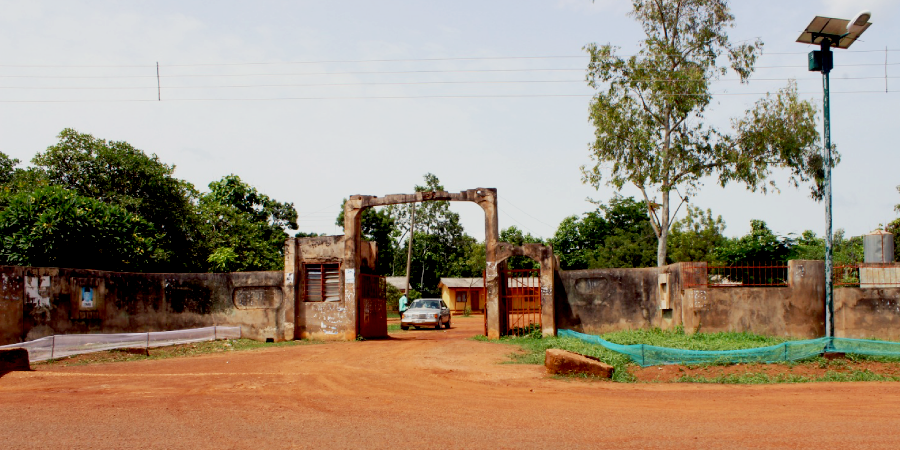
Oju Local Government Area
Oju was one of the pioneer local governments among the Three Hundred and One (301) local government areas created as a product of the progressive and revolutionary local government reform of 1976 in Nigeria.
Headquarters:
Oju town / council ward.
Created:
February, 1976
The people:
The Igede are the dominant ethnic group in the local government and the people speak the Igede dialect. The Igede people are accommodating and tolerant of visitors. The people make the non-indigenous tribes in the locality feel very welcomed and at home. Igede people at home have a rich culture that is a totality of the people’s way of life, heritage, language, history, geography and belief system. The traditional rulers have the mandate as custodians of the peoples’ culture to preserve and promote it, alongside the elders of the communities, individuals, and the local government authorities.
Local Government Chairmen:
View
- G. I. Owulo 1999 – 2002
- H. E. Adoche 1998 – 1999
- David O. Onah 1997 – 1998
- E. O. Ochele 1996 – 1997
- O. A. Agocha 1994 – 1996
- E. Agbaje (Sole Admin) 1993 – 1994
- Chief J. O. Eba 1991 – 1993
- Mrs Victoria Enyi 1990 – 1991
- S. B. Abdullahi (Sole Admin) 1989 – 1990
- John E. Enyi 1988 – 1990
- Jacob A. Oga (Sole Admin) October 1987
- John E. Enyi 1986 – 1987
- W. I Uttah (Sole Admin) 1984 – 1986
- J. O. Adikpe (Sole Admin) November 1983
- Benjamin Ugalahi 1982 – 1983
- Stephen Otor 1981 – 1982
- Samuel K. O. Itachu 1980 – 1981
- Chief John O. Itachu 1979 – 1980
- Chief O. B. Ode 1977 – 1979
- R. A. Hundu (Sole Admin) 1976 – 1977
Population:
700,000 people (2013 estimate)
168,491 people (2006 estimated census)
Occupation:
Farming, Trading, and Civil Service
Agricultural produce:
The land is very fertile and about 80% of the inhabitants are farmers. Its rich and diverse agricultural endowment include: yam, rice, beni seed, guinea corn, palm, soya beans, cassava, millet, maize, groundnut, and palm oil.
The economy is dependent on agriculture (food and cash crops) produced in commercial quantity.
The people of Oju are also involved in: Livestock keeping, Fishing, and Hunting
Geo-Location:
South East
Landmass:
100,000 Sq Km
It covers a land area of 1,283 square kilometers and ranges from 200m to over 500m above sea level
Boundaries:
- North: Obi and Gwer local government
- East: Konshisha local government
- West: Ado local local government
- To the South – Ebonyi and Cross River States of Nigeria.
Mineral Resources:
Oju Local Government Area has proven reserves of solid minerals like:
- Limestone
- Precious stone
- Bauxite
- Coal
- Clay
- Zinc, and
- Salt
These mineral deposits are currently untapped even though they’ve been proven to be present in commercial quantity.
Languages:
Igede
Distance from Makurdi:
115km (1hr 20min)
Area code:
JUX
Districts:
- Igede Central (Oju I) district/state constituency and
- Uwokwu (Oju II) district/state constituency
Council wards:
- Adokpa council ward
- Ibilla council ward
- Idelle council ward
- Iyeche council ward
- Oboru Oye council ward
- Oju council ward
- Okpokpo council ward
- Okudu council ward
- Owo council ward
- Ukpa council ward, and
- Ainu council ward
Markets in Oju:
Oju currently has five market days, namely:
- Ihigile
- Ihio
- Ihiobila
- Ihiejwo
- Ihiokwu
Religion:
Basically, there are two religions in Oju Local Government Area. The predominant Christianity on one hand and the traditional African religion on the other. The people of Oju are about eighty-five per cent (85%) Christians and about fifteen (15%) traditional worshippers.
